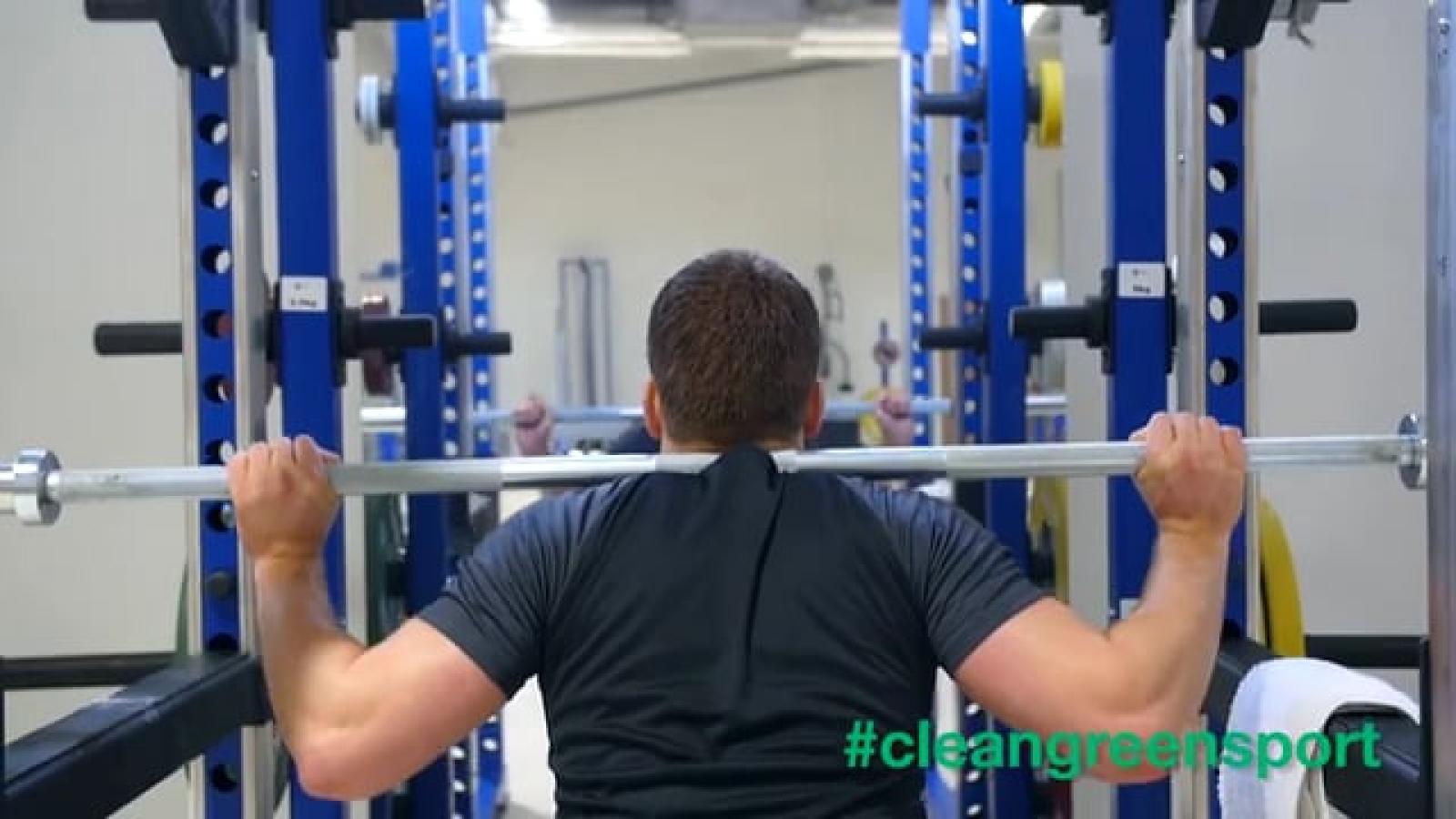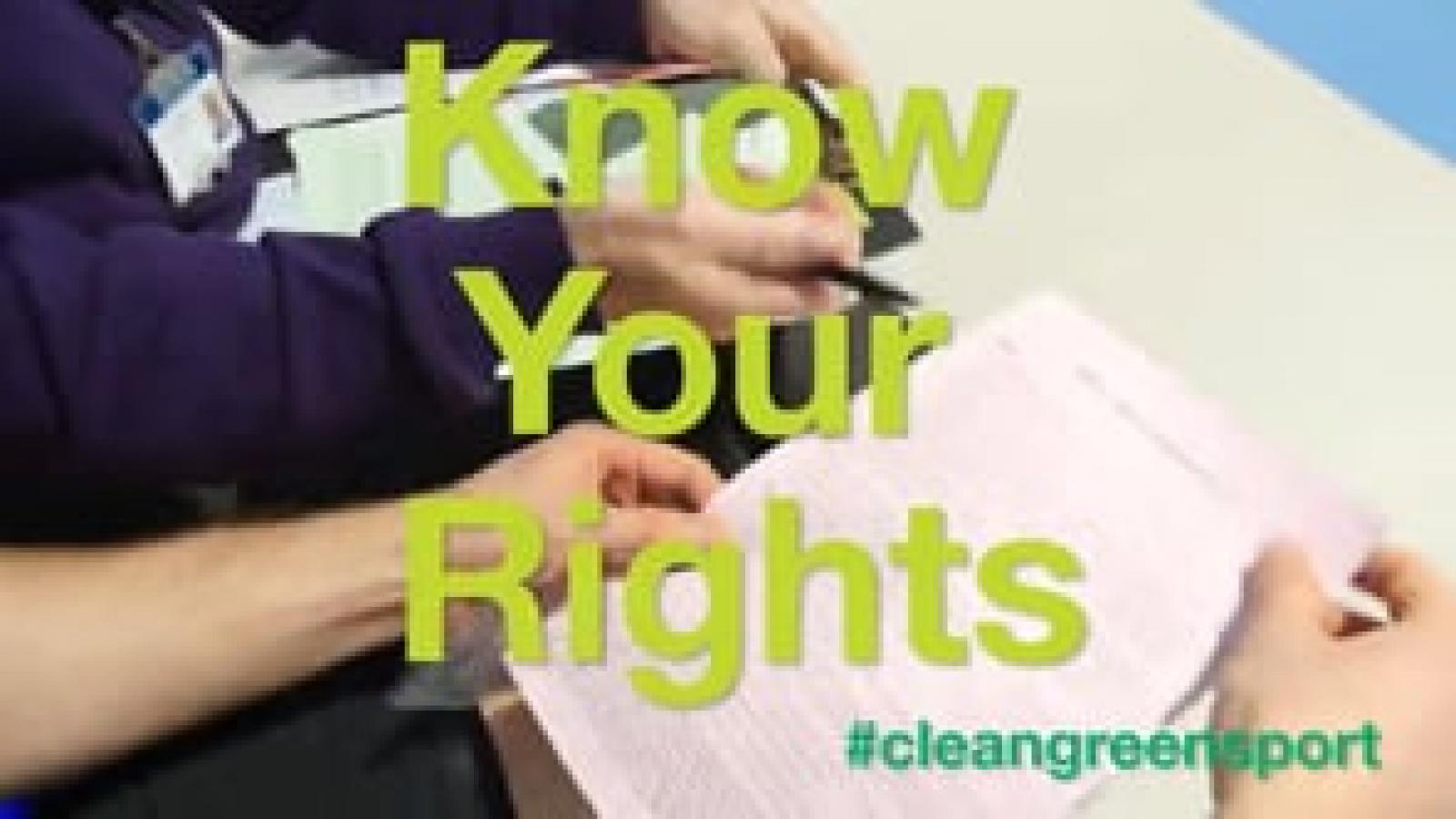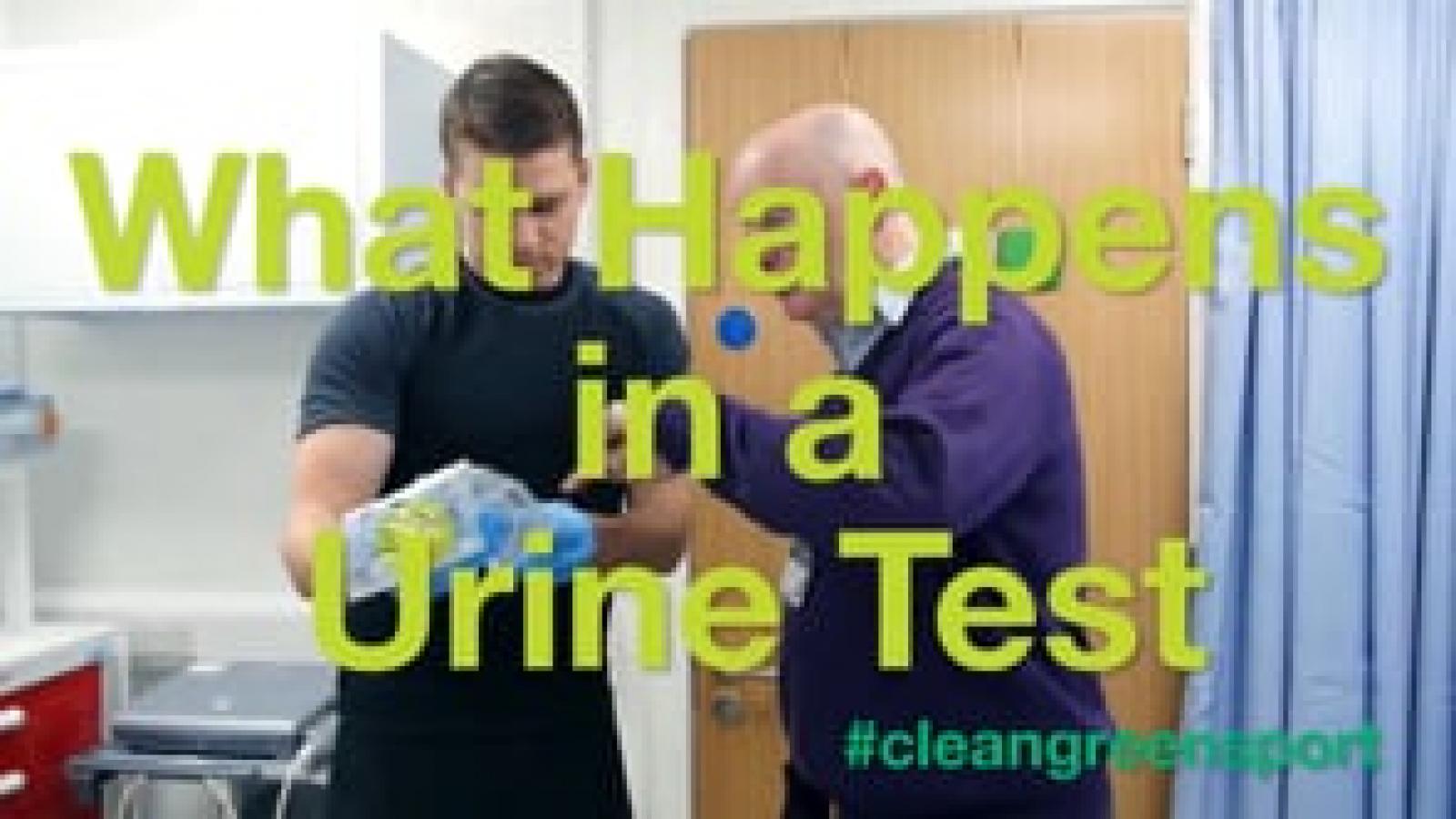What happens in a drug test?
Notification
A Doping Control Officer (DCO)/Chaperone will notify you if you have been selected for testing-either urine, blood or both.
Your Rights:
- Request to see the testers ID cards
- Bring a representative with you e.g. parent, team doctor, coach
- Request to have an interpreter (if necessary)
- Request information regarding the sample collection procedure
- Request necessary modifications to the sample collection procedure if you have an impairment.
- Request a delay in reporting to the Doping Control Station (DCS), where the tester will remain with you, for valid reasons such as:
- In-Competition: Participation in a victory ceremony; Fulfillment of media commitments; Competing in further competitions; Performing a warm down; Receiving necessary medical treatment; Locating a representative and/or interpreter; Obtaining photo identification; Any other exceptional circumstances which may be justified, and which shall be documented
- Out-of-Competition: Locating a representative and/or interpreter; Completing a training session; Receiving necessary medical treatment; Obtaining photo identification; Any other exceptional circumstances which can be justified, and which shall be documented
- Be provided with a choice of a minimum of 3 sample collection equipment including sample collection vessels and kits.
- Record comments about the sample collection procedure on the Doping Control Form
- Receive copies of all documentation you have signed
Your Responsibilities:
Click each icon to see your responsibilities. You will need to view all points to complete this section.
- Co-operate with the DCO and Chaperones during the sample collection procedure
- You must stay within the sight of the DCO/Chaperone at all times until you have provided your sample and are released by the DCO
- You must comply with the sample collection procedures; the first sample that you provide, after notification, must be at the DCS; you must retain control of your urine sample until it is securely sealed.
- You should avoid excessive re-hydration as a there is a requirement to produce a sample with a suitable Specific Gravity for analysis.
- Report immediately to the Doping Control Station (DCS) for a test unless there is a valid reason for a delay.
- Produce photo identification, when requested, to the DCO/Chaperone
- Ensure all applicable documentation is accurate, complete and signed off
- If you choose to consume food or fluids prior to providing a sample it is at your own risk.
Athlete Selection
Testing takes place in two situations in-competition and out-of-competition.
In-Competition
In-Competition testing takes place at sporting events. Selection can be random or targeted, from members of a team/squad or athletes entering a competition. Selection can also be based on criteria such as finish position, jersey numbers, discipline or targeted for a particular reason. Athletes who have not taken part in the competition, e.g. reserves or non-starters, are still subject to doping control.
Out-of-Competition
Out-of-Competition testing takes place anytime, anywhere, with no advance notice. If you are on a Registered Testing Pool (RTP*), you will be required to provide whereabouts information and could be tested at home, at your training location, overseas or other relevant locations. Teams/National Squads are mainly tested at team/squad training sessions but athletes may also be tested at other locations including their homes.
*The RTP is a pool of athletes who are subject to both in- and out-of-competition testing, who must meet whereabouts and TUE requirements of Sport Ireland. Individual athletes are informed in writing of their inclusion in the RTP.
Sample Collection
Sample Collection
One or more urine and/or blood samples will be collected from you during the sample collection process.
Witness
The Chaperone/DCO must witness the sample leave your body and enter the vessel with a clear and unobstructed view. You must ensure that the Sample Collection Vessel remains in the sight of the Chaperone/DCO while you provide your sample.
You will be asked to adjust clothing so that mid-chest to knees are visible and you will need to roll up your sleeves from your wrist to your elbow; if necessary, you may need to adjust your position so that a clear view is possible.
Under 18
U18 - Your representative may be present in the toilet area to witness the actions of the Chaperone/DCO; if as an U18 athlete you would prefer not to use your own representative, you can liaise with the Chaperone/DCO to organise another appropriate person to witness the actions of the Chaperone/DCO.
Key Points
- The chaperone will be of the same gender as the athlete
- Avoid excessive rehydration
- Ensure you are ready to provide your sample
- The athlete should stay in control of their sample at all times nobody else should touch the sample until it is sealed
- Remember you select your own sample collection vessels and bereg kits from a minimum choice of
- Keep a list of the names, dose and route of administration of all medicines and supplements you are taking to complete the paperwork.
- All blood collection officers are qualified phlebotomists
- If you have been training you may have to wait 2 hours before the blood can be drawn
- Only 3-5ml of blood will be taken
- If you have a phobia of needles please inform the BCO
Sample Analysis
Samples are sent to a WADA accredited laboratory for analysis.
The laboratory receives a copy of the Doping Control Form that reveals none of your personal details.
On arrival at a WADA accredited laboratory, the A sample is opened and analysed and the B sample is securely stored.
On receipt of the samples, laboratory staff complete checks on the integrity of the sample (signs of tampering, correlation between sample code numbers on forms and those on the bottles) before proceeding with the analysis of the sample.
Results Management
The laboratory sends the result to Sport Ireland who will then forward the result to your National Governing Body (NGB).
It is the responsibility of your NGB to notify you of the result in writing. If you have not received your result from your NGB within 6 weeks of the sample collection, please contact your NGB for the result.
A copy of the result is sent to WADA by the lab to ensure accountability in the process. In the case of an adverse analytical finding, you will be contacted directly by Sport Ireland. It takes longer for the laboratory to process blood tests, so in general it will be about ten weeks before you receive a result for blood tests.


